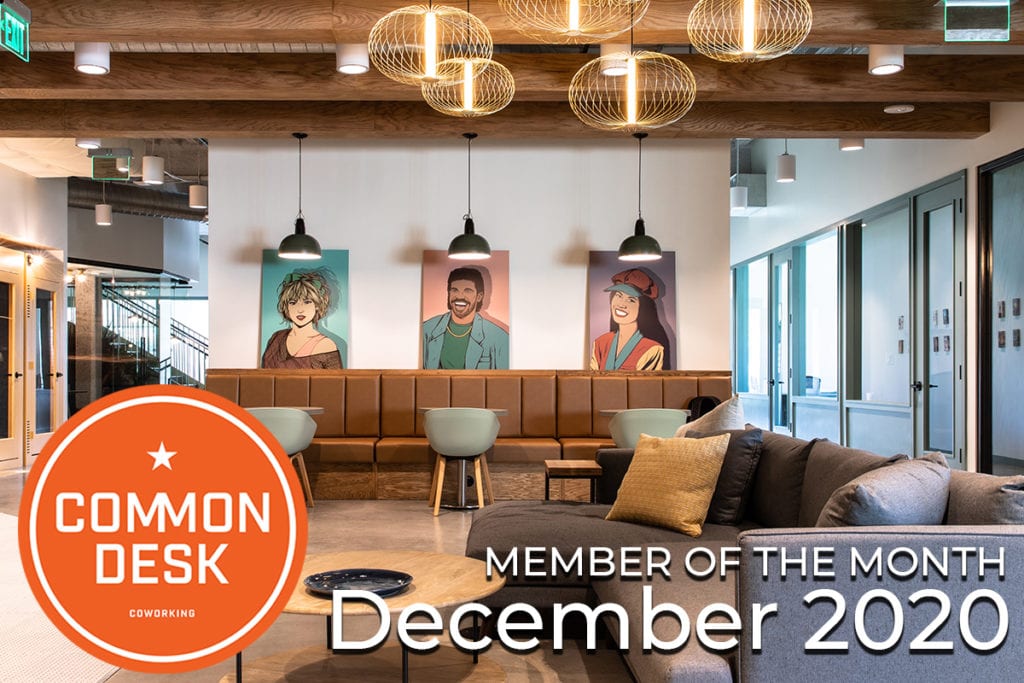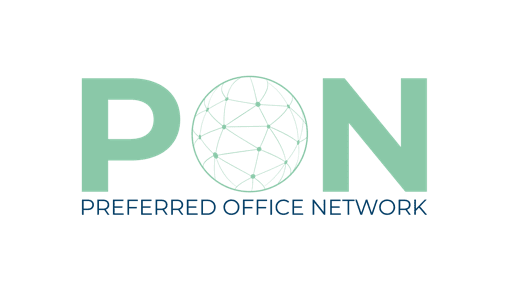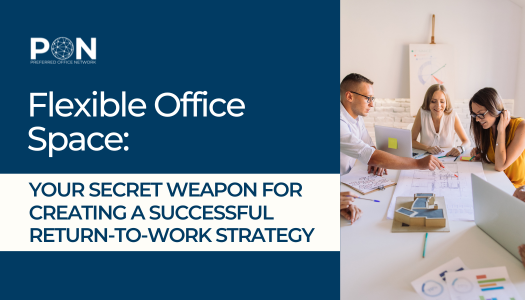
In 2011, Nick Clark, CEO of Common Desk, took a chance.
A chance based on the then-hypothesized growth and success of the flex office industry.
A chance based on the intuition that flexibility within lease terms would become crucial to all lease agreements.
“I left my job in traditional office leasing back in 2011 to start something a little bit different for the Dallas, Fort Worth market,” said Nick.
“Something that centered around flexibility, turnkey amenities, and more of a community-driven offering.”
That, “something,” turned out to be Common Desk, an ever-growing Dallas-based coworking provider that, “really tries to make the workday better for anyone coming into our locations,” explained Nick.
“We have seven locations across Dallas, we have four in Austin, we have two in Houston and a few more that are on their way,” Nick said.
“We just ventured out to North Carolina so we’re continuing to grow in this hectic year that is 2020.”
Much of this growth comes from Common Desk’s ideal configurations that allow them to place enterprise users and their teams in safe, innovative, and flexible workspaces of the today.
“We started really dipping our toes into the enterprise business back in 2016,” began Nick.
“I saw that people started scaling up the size of their coworking spaces and offering larger and larger space to [even] larger teams. But, not necessarily giving much of a discount or consideration to the economy to scale of the larger space,” he adds.
With this observation in hand, Nick and Common Desk took a different approach to the enterprise business.
“We partner with landlords – as opposed to signing leases,” he said.
“Then, because of that partnership with the landlord we’re able to distribute highly amenitized spec suites across a market like Dallas Fort Worth, where the landlord is helping us take care of a good spec suite build out.”
Known for its comprehensive turnkey offering, within the build out, Common Desk provides the furniture package and the amenities needed by these enterprise users.
“But then we’re able to do that at a price point that isn’t based on traditional product trends in a market.”
“So, when it comes to our enterprise offerings, we’re doing those at a price point that really makes sense compared to the traditional product,” Nick said.
“It’s a consideration for the flexibility that comes at a bit of a premium, the amenities, and the turnkey aspect of a full FF&E [fixtures, furniture, and equipment] package within the space,” he adds.
Quite brilliantly, Common Desk takes directly after its name, partnering with landlords to say, “Hey, how can we move this forward for everybody?”
But, along with many others in the flex office industry, COVID-19 has forced Common Desk to adapt to a more agile and flexible approach – both in its product offerings and in its approach to enterprise business.
“We’re now looking at everything and considering more of an on-demand or à la carte offering,” said Nick.
“What I mean by that is [offering more] flexibility,” he explained. “If we thought flexibility was key before and it was trending before – it’s nothing compared to what it will in the future.”
Flexibility to Common Desk within today’s new normal means rearranging its products and offerings to accommodate for now-desired hybrid schedules.
“Now, with all our products across the board, we’re saying, if you want to take that space on Tuesdays and Thursdays, we’ll help you go find a team that will take it Monday, Wednesday, and Friday,” Nick explained.
“We’ll help you find somebody else to fill in the gap and help soften the blow of what the market rate is for that particular suite and help to align it with how you guys are utilizing that space, in 2020 and beyond.”
Although creating difficult obstacles for many shared space providers, Nick and Common Desk believe that today’s new normal is helping them to re-work how companies are planning on officing moving forward.
“Teams no longer want just one big, open glass box at $80 a square foot – that is done, that is over,” Nick said.
For other members of PON looking to attract more enterprise clients, Nick feels that the opportunity is currently ripe for the taking.
“Flexibility has become so much bigger in the Fortune 1000 category. For these enterprise users, a flex office would have never been considered as an alternative workspace option in the past – but it is now being considered in 2020.”
“But, if you’re going to commit to it [aiming to attract enterprise users], make sure you’re getting it right. It’s not just scaling up the space – it’s the price point and it’s the way that you’re designing the space,” Nick added.
The burning question though, is what does the flex office industry look like, post COVID-19?
“I think the term flex office, in some ways, will go away,” exclaimed Nick. “I think it’s all going to meld together.”
“You’re going to have a hard time differentiating where does the flex office end and where does the hospitality, the lobby, and the traditional product begin,” he said.
“It’s all going to become more of one holistic offering – that’s what it has to become.”



